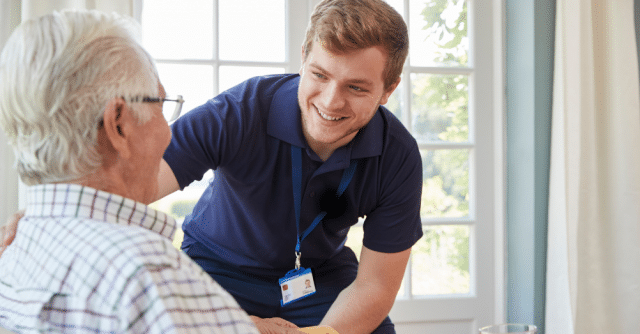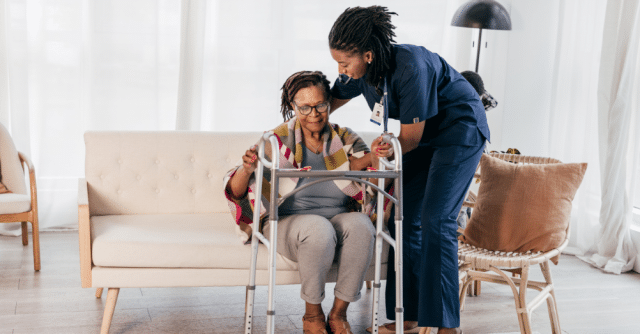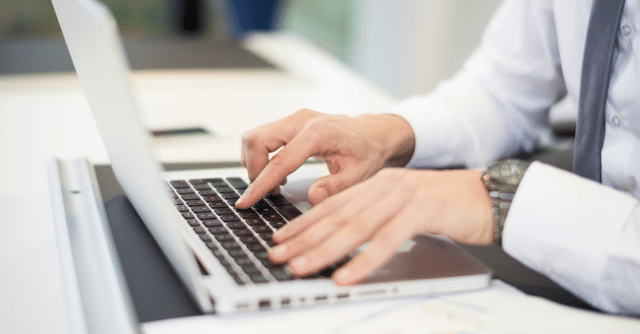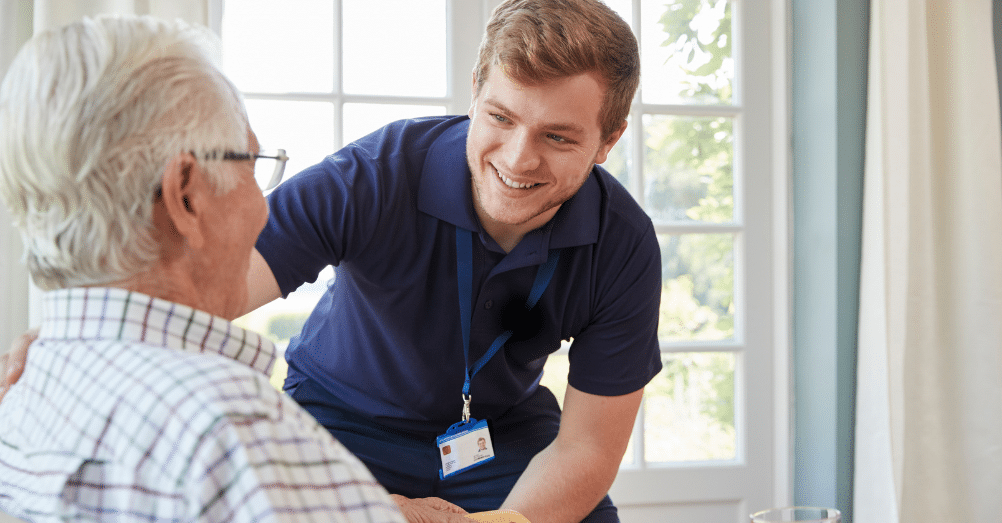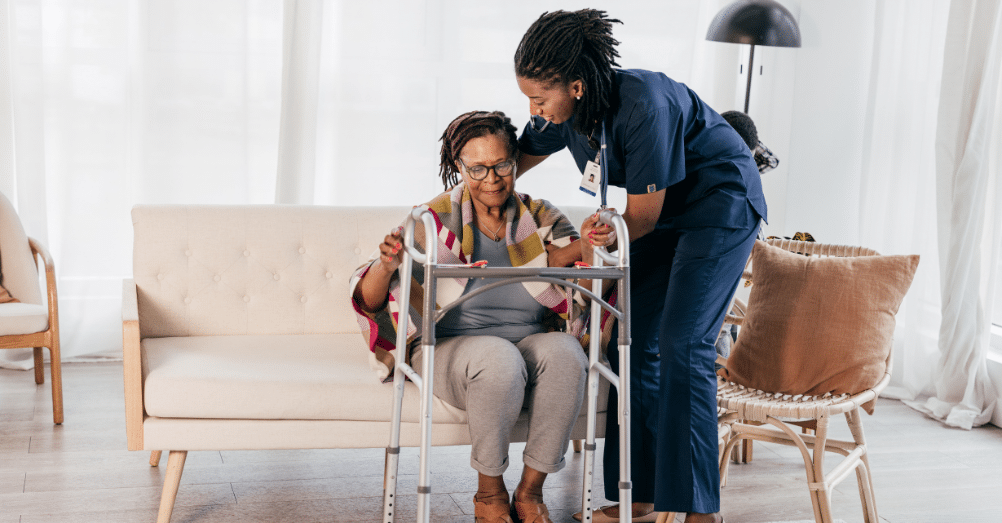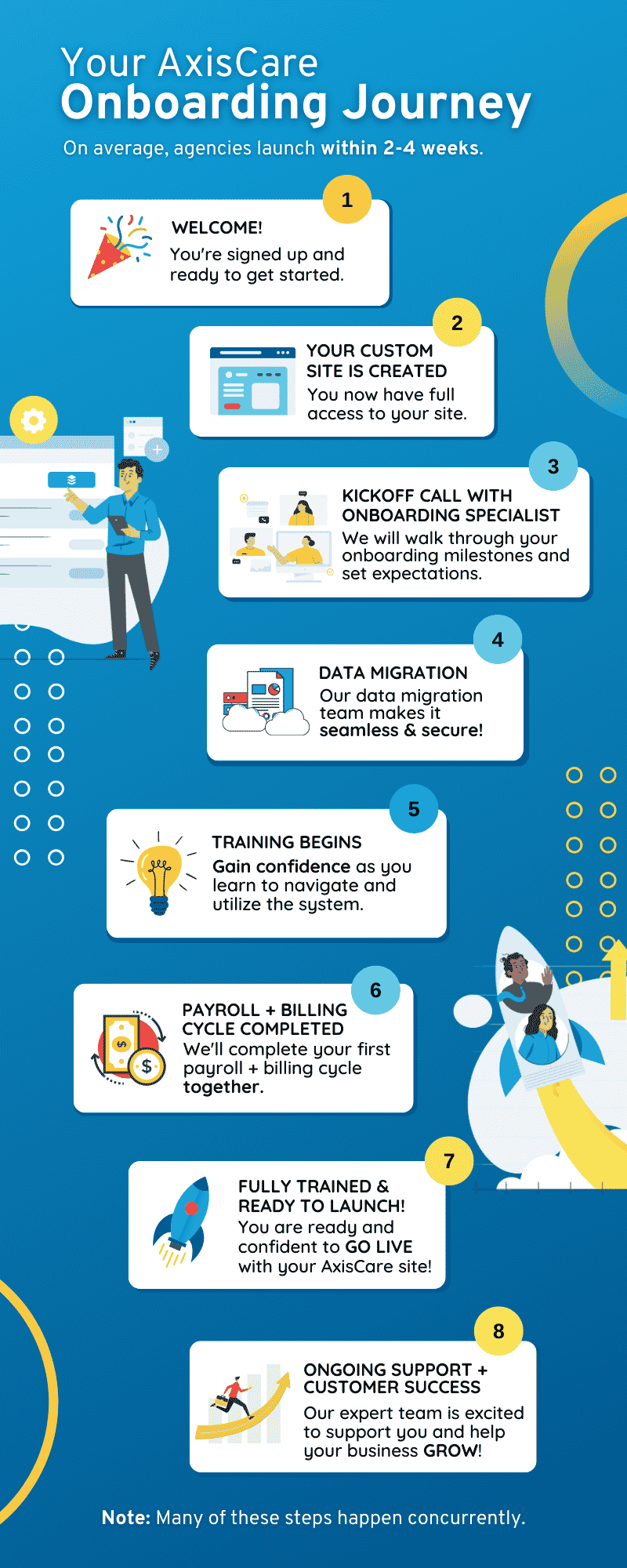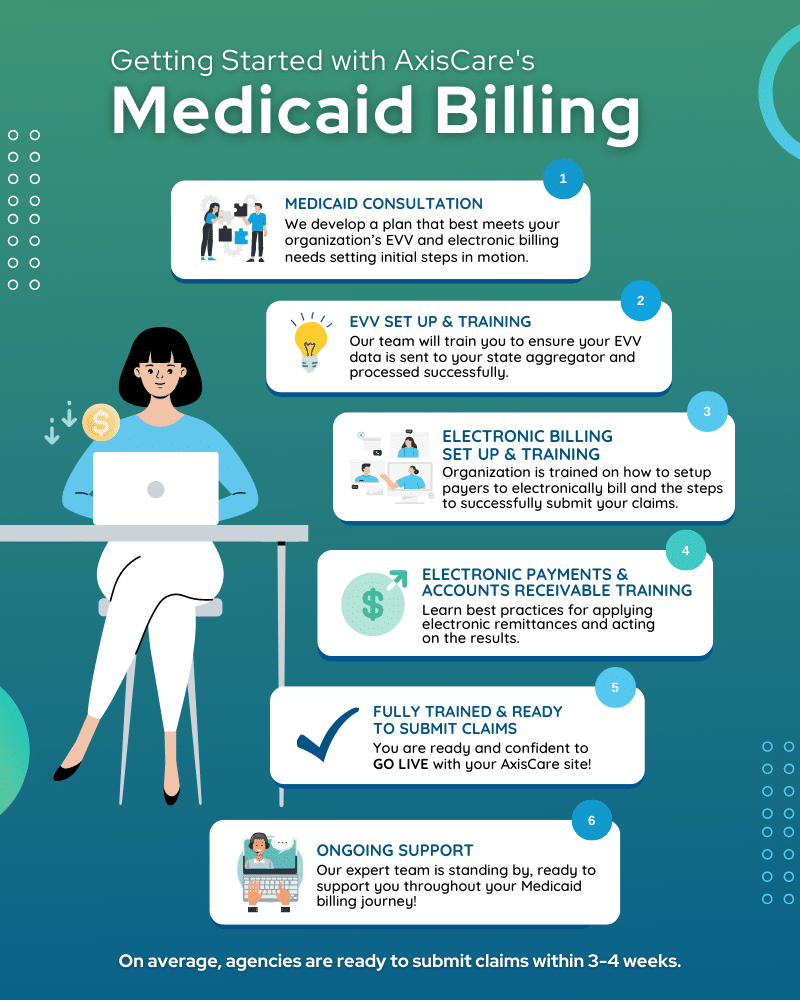Society is becoming less tied to personal computers and more dependent on flexible, mobile technology. As a result, mobile apps are being created for health care professionals and clients with handheld devices in mind.
These innovative health care apps are revolutionizing home care and making headway in helping clients receive personalized care more efficiently.
But how, and why are mobile health care apps so effective?
Summary
Mobile health care apps are transforming home care by enabling remote monitoring, telehealth, medication management, real-time communication, scheduling, and education—improving access, personalization, and efficiency for clients and caregivers. They streamline agency and clinician workflows (e.g., care notes, e-prescriptions, HIPAA-compliant chat, population health insights) while empowering patients to self-manage and stay at home longer. Key challenges include security, regulatory scope, and the digital divide. Looking ahead, AI, AR/VR, blockchain, and IoT will expand capabilities; AxisCare’s app illustrates these benefits by consolidating essential home care functions.
What are Health Care Mobile Apps?
Mobile apps made specifically for health care can be downloaded just like any other app in your devices app store and are designed by software engineers specifically for mobile devices. They run smoother on mobile interfaces than a traditional website and are designed especially for a handheld user experience.
Health care apps are designed for a variety of purposes, which we’ll dive into in this post.
Mobile apps can be more accessible to clients with disabilities or maneuverability issues due to their remote access. Apps make it easier for many clients to communicate with caregivers in real time and receive more attentive, immediate care.
Through health care apps, clients can become better advocates for their own health and care plans.
When caregivers visit clients, they may not have immediate access to a computer. With mobile devices and health care apps, however, they have instantaneous mobile access to care notes and client information in the palm of their hand.
With these apps, caregivers can immediately register work hours, check schedules, enter care notes, and more.
Types of Mobile Apps for Health Care
Clients and caregivers can benefit from a variety of mobile health care apps, including the remote monitoring of vital signs, medication management and reminders, virtual consultations and telehealth, and health education.
Patient Monitoring Apps
These apps can monitor a patient’s vitals 24/7 with mobile devices. Through this, patients can receive prompt medical care.
Telehealth Apps
Online doctor’s visits are so convenient, especially for the mobile-impaired. With zero in-person wait times, clients can talk to doctors and caregivers from the comfort of their homes.
Medication Management Apps
Patients are automatically reminded when it is time to take their medications, leaving less room for error.
Health and Wellness Apps
Patients can follow routines easily and receive suggestions for a healthy lifestyle.
Scheduling no longer requires phone calls with extended holding times. It can be done within minutes in an app and includes appointment reminders prior.
Caregiver Support Apps
Whether a caregiver is a family member or a health professional, there are apps that contain support groups such as Facebook. Caregivers can crowdsource information, chat with one another, and find community of like minded individuals.
More health care apps include:
- Fitness and Wellness Coaching
- Mental Health
- Health Education Apps
Mobile Apps for Medical Institutions
These can include appointment scheduling and reminders, prescription management and delivery, health insurance, and billing.
Electronic Health Record (EHR) Apps
This consolidates information like lab integrations, patient notes, remote charting, and scheduling and can also allow for e-prescriptions.
Population Health Management Apps
The American Hospital Association defines population health management as “the process of improving clinical health outcomes of a defined group of individuals through improved care coordination and patient engagement supported by appropriate financial and care models,” all facilitated through an app.
Staff Communication and Collaboration Apps
With HIPAA compliant chat options, the easier it is for staff to correspond with one another, the smoother a home care business runs.
Emergency Response and Disaster Management Apps
Emergency preparedness is essential, whether an institution’s location places them at risk of hurricanes, tornados, or other natural disasters. All of these apps’ recommended procedures proactively protect patients and employees.
You can ensure your health care practices are meeting client expectations with mobile apps that analyze the necessary data and even track hospitalizations.
Other apps include:
- Appointment Scheduling and Reminder Apps
- Health Insurance and Billing Apps
- Workflow and Productivity Apps
- Patient Engagement and Education Apps
How Mobile Apps are Revolutionizing Health Care
With their flexibility and ease of use, mobile apps are improving client access, engagement, care coordination, and communication. They are quite literally empowering clients and caregivers through the palms of their hands.
The result is transforming health care as we know it, leading to further innovation and better care being provided.
Mobile apps are enabling the remote monitoring of patients’ health parameters. This allows health care providers to consistently monitor patients with chronic diseases, post-operative patients, or anyone requiring ongoing care without having to be physically present around the clock.
Mobile apps are leveraging real-time technology to enable instant communication, remote monitoring, and timely access to health care services.
Health care is now more accessible to patients. Virtual consultations, remote monitoring, and telehealth services can occur much faster, without a lengthy wait.
Health care professionals can use apps to access medical references, drug information, continuing medical education (CME) resources, and clinical decision support tools.
Mobile apps centralize patient health information and documentation through electronic health record (EHR) apps, improving care coordination and patient safety.
Streamlined processes and a centralized platform for scheduling appointments, assigning tasks to care team members, and tracking the status of care plans offer another significant benefit.
Mobile apps are empowering individuals to monitor and manage their health and wellness proactively. They have more control and can even live at home longer without assistance.
Better communication and coordination among health care providers, patients, and caregivers will fluidly maximize efficiency and quality of care.
Challenges with Mobile Apps for Health Care
Despite their numerous benefits, mobile health care apps still face a few hurdles. The most relevant problems with mobile tech can include:
Privacy and Security Concerns
Apps, like websites, can be subject to security flaws. It’s essential to enable regular updates and download apps from trusted sites.
A Lack of FDA Regulation
The FDA won’t manage health care apps that aren’t considered medical devices, and this can include health records and communication. The FDA does, however, regulate apps with active patient monitoring.
Limited Access to Patients and Technical Support
Not all patients have smartphones and tablets, especially when administering care to an aging population, which is a problem if health care professionals rely on apps alone to monitor and communicate with their patients.
Future of Mobile Apps for Health Care
Mobile apps are restructuring how health care is accessed, delivered, and managed and are improving patient outcomes and enhancing patient engagement.
Apps will continue to serve a critical part of the health care industry as technology becomes further refined, and the near future possibilities are increasingly promising:
Artificial Intelligence-powered health care apps can potentially improve diagnosis accuracy, optimize treatment plans, and enhance patient care.
Augmented Reality can be utilized in mobile apps to provide immersive and interactive experiences for patients, medical practitioners, and caregivers and can also be beneficial for surgical planning.
Virtual Reality can be used in mobile apps to create virtual therapeutic environments, conduct virtual reality therapy sessions, and provide virtual training for medical procedures. VR can also be used for mental health practices and training health care professionals.
Blockchain technology can be used to securely store and share electronic health records (EHRs) among different health care providers, allowing for a seamless and secure exchange of patient data while maintaining patient privacy.
IoT is already transforming health care, and mobile apps are expected to further integrate with IoT devices to enable remote monitoring, real-time data collection, and personalized health care.
Get to Know Our Caregiver Mobile App
AxisCare is always innovating and striving to meet the industry’s latest technological demands. Our health care software app has been designed to streamline the caregiving process and make it easier for caregivers to document visits, navigate to client homes, ensure HIPAA compliance, have two-way chat with the office, and more.
While simplifying the caregiving process, our app also makes it easier to keep effective communication between caregivers and facilitate even better client care.
With the benefits of many different home health care apps rolled into one, book a demo with one of our home care experts to learn more about our app and #1 rated home care software.
FAQs
They’re apps built specifically for smartphones and tablets, optimized for handheld use rather than desktop websites. In home care settings, this matters because both clients and caregivers need real-time, on-the-go access: caregivers can view care notes, schedules, and log hours at the point of care, while clients—especially those with mobility or accessibility challenges—can communicate remotely, receive timely support, and better advocate for their own care.
They enable remote monitoring of vitals, virtual consultations/telehealth, medication reminders, and health education—all of which speed access, reduce errors, and personalize care. Apps also simplify scheduling and appointment reminders, support HIPAA-compliant communication, and help clients self-manage their health so they can safely remain at home longer.
Apps consolidate care documentation (care notes, remote charting), scheduling and task assignment, e-prescriptions, and integrations like labs and patient records. They support secure team messaging, population health insights (improving outcomes via coordinated care and engagement), and even emergency preparedness protocols. Agencies can analyze key data, track hospitalizations, and give clinicians access to references, drug info, CME, and decision support tools—reducing friction across the care continuum.
Key hurdles include security risks (necessitating regular updates and trusted downloads), regulatory scope (the FDA regulates apps functioning as medical devices—such as those with active patient monitoring—but not general health records or communication tools), and the digital divide (not all patients—particularly older adults—have or can use smartphones/tablets). Providers shouldn’t rely on apps alone if patients lack access.
AI, AR/VR, blockchain, and IoT will further personalize care, expand training and therapy options, secure data exchange, and deepen real-time monitoring. AxisCare’s caregiver app demonstrates current best-in-class capabilities by consolidating essentials for home care: visit documentation, navigation to client homes, HIPAA-compliant two-way chat, scheduling, and more—streamlining workflows while supporting better client care.

